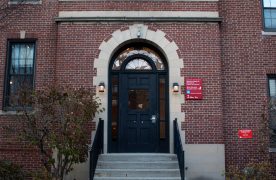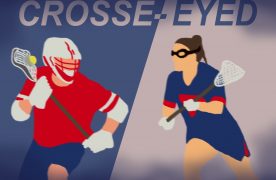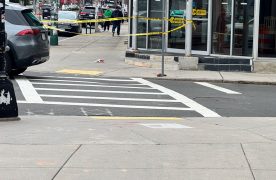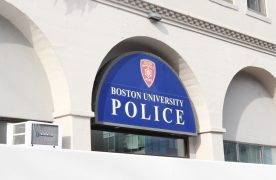Under a newly passed New Hampshire law, which has already been passed in several other states, underage drinkers walking on the street risk losing their drivers licenses for possessing alcohol — in their stomachs — even if they are not carrying alcohol containers.
Eddie Edwards, chief of liquor law enforcement for New Hampshire, said this law does not intend to increase the number of arrests.
“This law is about saving lives,” he said.
According to the law, if minors refuse breathalyzer tests they can lose their licenses, yet if they test positive for alcohol consumption they can still lose their licenses, Edwards added.
“The license piece is really to help control the underage drinking,” he said.
According to Thomas Hafemeister, associate professor at University of Virginia Law School who also wrote a book addressing laws regarding underage drinking, the law states that the typical punishment for a crime is supposed to be proportional to the behavior.
“If you are just walking intoxicated, to lose your license is disproportionate,” he said.
UVA law professor Richard Bonnie said this law potentially infringes upon basic civil liberties.
“Aside from special rules regarding driving while intoxicated, our society does not punish a person for having a substance in their body in large part because it offends basic principles to search a person’s body for evidence of the crime,” he said.
Edwards said this law was enacted in an effort to reduce alcohol-related problems in underage drinkers, such as alcoholism and drug abuse, which young people are four times more likely to develop than adults.
“The most compelling reason is to provide officers with tools at night to properly assess young people and decide whether they need help or not,” Edwards said.
According to the Mothers Against Drunk Driving website, “the brain does not finish developing until a person is around 20 years old, and one of the last regions to mature is intimately involved with the ability to plan and make complex judgments.”
Massachusetts has been cracking down on alcohol abuse since 2005, beginning with Melanie’s Bill, which increases penalties for drunk drivers within Massachusetts. The state also increased the penalties for using false identification to buy alcohol and requires all keg purchasers to report their names and addresses.
However, Allison Mitchell, press secretary for Timothy Cahill, who oversees Alcoholic Beverages Control Commission for Massachusetts, said the state does not have a law parallel to the one in New Hampshire, where underage drinkers can lose their license for internal possession. However, underage drinkers caught driving with a blood alcohol level between .02 and .05 can lose their license, she added.
Anthony Maiola, chairman of the New Hampshire Liquor Commission, said New Hampshire is trying to stiffen underage drinking by holding their parents responsible.
“Kids aren’t coming into the stores, they are taking it from their bars at home,” he said. “It starts at home.”
Hafemeister, who also wrote the article <<<
Hafemeister added that he does not think this state law would be nationally mandated since states have historically been responsible for criminal laws.
However, Congress does have the power to “tie federal funding to drinking laws” in order to control statewide policies regarding alcohol, he added. If the state legislature does not comply it risks losing their federal funding.
Hafemeister said he disagrees with laws that specifically target underage drinkers, adding that he does not think these laws will decrease underage drinking “until we have a culture that wants to sanction this behavior.”
The old approach was to impose a fine on the underage drinker, he continued.
But many are skeptical of the effectiveness of the law.
Boston University School of Management senior Gil Adler said he disagrees with the stricter alcohol policies.
“The more you try to stop underage drinking, the more they’re going to drink,” he said.
Adler said that when the war on drugs in the 1970s focused on marijuana, people did harder drugs, such as like cocaine, and then continued onto harder drugs, like heroine and ecstasy.
“And now kids are doing prescription drugs to get high.”
Hafemeister said he agreed, adding that “research indicates that this is not effective.”
However, he said the possibility of the offenders losing their licenses does have a bigger effect than fines alone, since driving is important to youth.
Hafemeister also said that while drinking is a significant part of college, most of these students turn out fine.
“We need to identify the ones that need help and provide appropriate care.”
This is an account occasionally used by the Daily Free Press editors to post archived posts from previous iterations of the site or otherwise for special circumstance publications. See authorship info on the byline at the top of the page.













